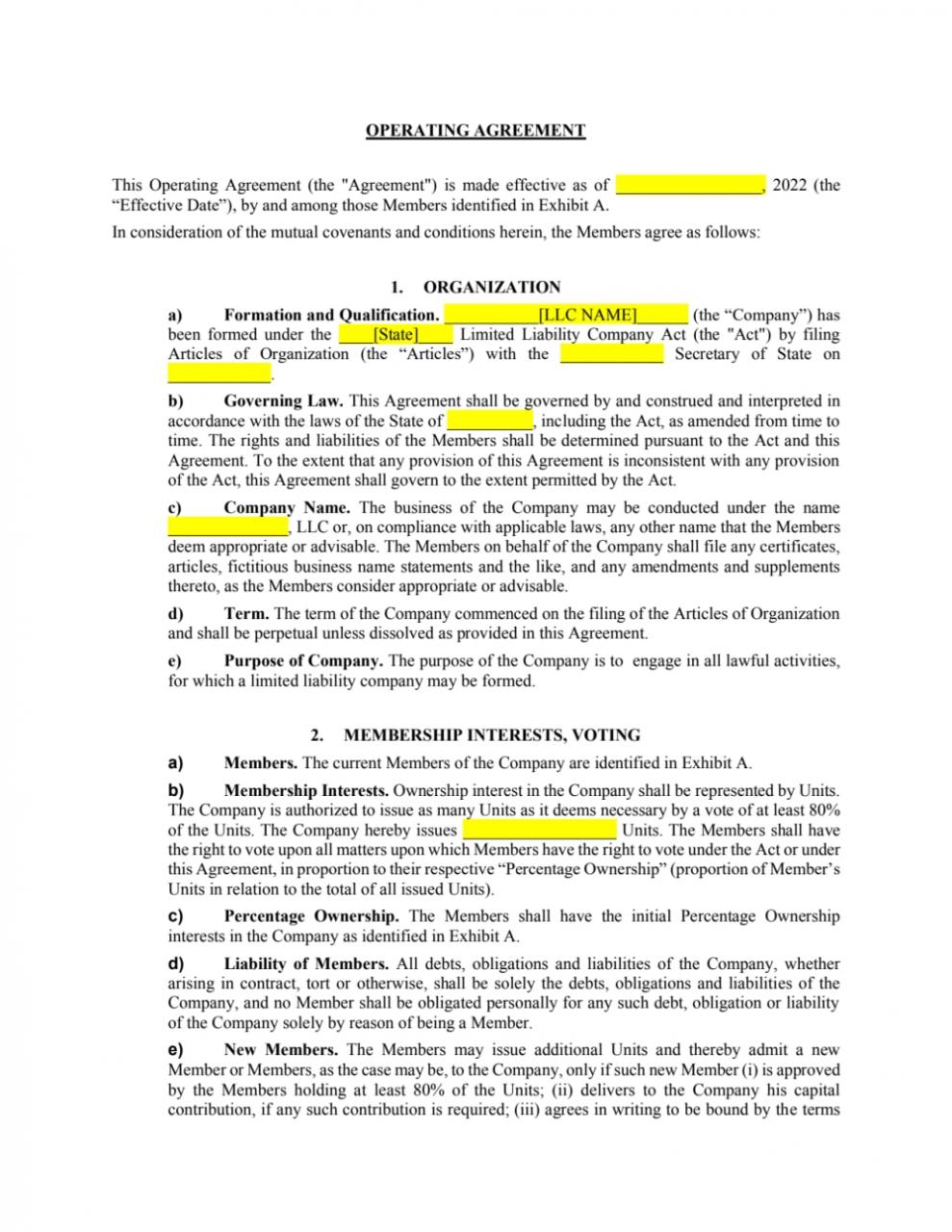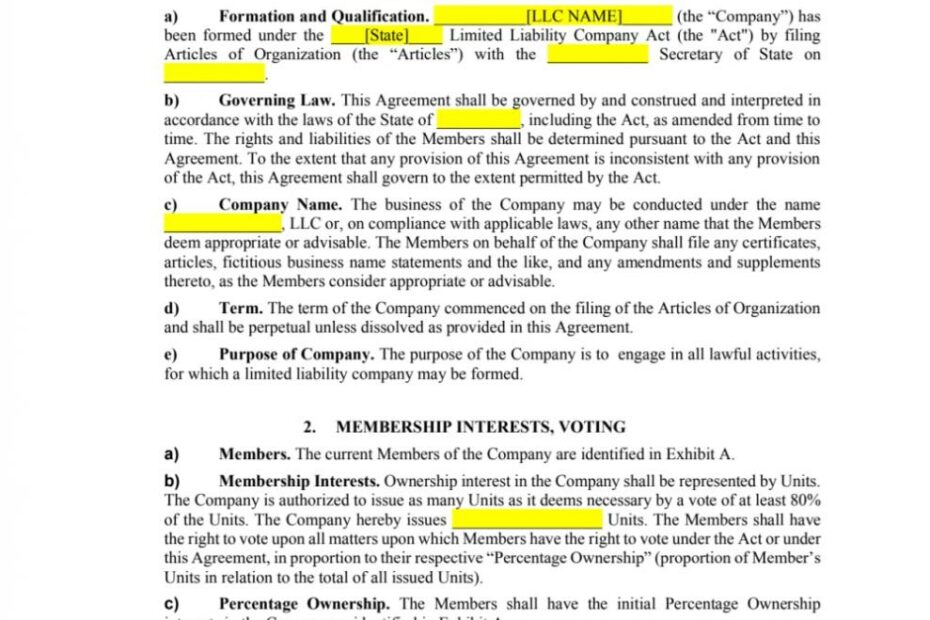Are Bylaws Considered A Contract? Exploring Legal Implications
TÓM TẮT
What Are Bylaws? (Section 45 To 47, Revised Corporation Code)
Keywords searched by users: Are bylaws considered a contract what is the purpose of bylaws for a nonprofit, what are bylaws for a nonprofit, are bylaws legally binding, why are bylaws important, what is bylaws document, how to write bylaws, what are bylaws for a corporation, can bylaws be changed
What Are Contract Bylaws?
Contract bylaws, also known as corporate or nonprofit bylaws, are essential legal documents that organizations rely on to establish and enforce the governing rules for their board of directors. These bylaws encompass a wide range of crucial aspects that dictate how the board operates and makes decisions. Some key components typically covered in contract bylaws include:
-
Quorum Requirements: Contract bylaws outline the minimum number of board members needed to conduct official meetings and make binding decisions. This ensures that important matters are not decided by too few members and promotes inclusivity in the decision-making process.
-
Board Member Terms: They specify the length of time a board member serves in their position. This information helps maintain a structured rotation of board members, ensuring a healthy balance of experience and fresh perspectives.
-
Annual Meetings: Contract bylaws often mandate the frequency and format of board meetings, with a particular focus on the annual gathering. These meetings provide an opportunity to assess organizational progress, set goals, and elect or re-elect board members.
-
Top-Level Administration Issues: Beyond the specific points mentioned above, contract bylaws can delve into various administrative matters, including the responsibilities of officers, procedures for amending the bylaws, and the overall governance structure of the organization.
In essence, contract bylaws serve as the foundational guidelines that steer the actions and decisions of an organization’s board of directors, ensuring that they operate within legal boundaries and adhere to a structured framework. These bylaws are a vital aspect of corporate or nonprofit governance, promoting transparency, accountability, and the effective management of the organization’s affairs.
Is A Contract Enforceable By Law?
Is a contract legally enforceable? Yes, an enforceable contract refers to a formal agreement, which can be either written or oral, that holds legal weight and can be upheld in a court of law. To make a contract enforceable, it typically requires the consent of all parties involved. If the law allows for the enforcement of a particular contract, it becomes the responsibility of the parties who have agreed to it to fulfill their obligations as outlined in the contract. It’s important to note that once a contract is in place, the terms and conditions specified within it must be adhered to; any violation or breach could render the contract void and subject to legal consequences. In essence, the legal enforceability of a contract ensures that the parties involved are bound by the terms they have agreed upon, and failure to uphold these terms can result in legal remedies being pursued.
What Are The 4 Types Of Contracts?
There are four primary types of contracts that play distinct roles in various business and legal contexts:
-
Sales Agreements: These contracts govern the exchange of goods or services for a specific price. They outline the terms and conditions of the sale, including payment schedules, delivery, and warranties.
-
Non-Disclosure Agreements (NDAs) and Intellectual Property (IP) Management Contracts: NDAs are designed to protect sensitive information from being disclosed to unauthorized parties. IP management contracts, on the other hand, cover the use and ownership of intellectual property, such as patents, trademarks, and copyrights.
-
Professional Service Agreements: These encompass three subtypes:
- Fixed-Price Contracts: Specify a predetermined cost for a particular project or service.
- Time and Materials Contracts: Detail hourly rates, materials costs, and the time required to complete a project.
- Retainer-Based Contracts: Establish an ongoing relationship where a client retains a service provider for a set period, often paying a recurring fee.
-
Adhesion Contracts: Also known as standard-form contracts, these are typically offered by one party with minimal negotiation. They’re commonly found in scenarios like consumer agreements and insurance policies.
Understanding these four contract types is crucial for anyone involved in business or legal matters, as they provide the foundation for formal agreements across various industries and contexts.
Found 38 Are bylaws considered a contract


Categories: Details 86 Are Bylaws Considered A Contract
See more here: buoitutrung.com

Corporate bylaws are the set of rules that govern a corporation’s operations. They are legally enforceable as a contract among the members of the corporation.Bylaws are legal documents that organizations use to define the legally binding rules a corporate or nonprofit board of directors uses to operate. They address critical issues, such as quorum requirements, board member terms, annual meetings, and other top-level administration issues.An enforceable contract is a written or oral agreement that can be imposed in a court of law. If the law permits enforcement of a contract, execution of an agreement is the obligation of the assenting parties. Terms may not be violated or breached without causing the contract to void.
Learn more about the topic Are bylaws considered a contract.
- What Are Corporate Bylaws? – LegalMatch
- Bylaws: Everything You Should Know – Contracts Counsel
- Enforceable Contract: Everything You Need to Know – UpCounsel
- 4 Most Important Types of Contracts to Your Organization – ContractPodAi
- Unenforceable contracts : what you need to know – iPleaders
- What Makes a Contract Invalid? – Ironclad
See more: blog https://baannapleangthai.com/tech

